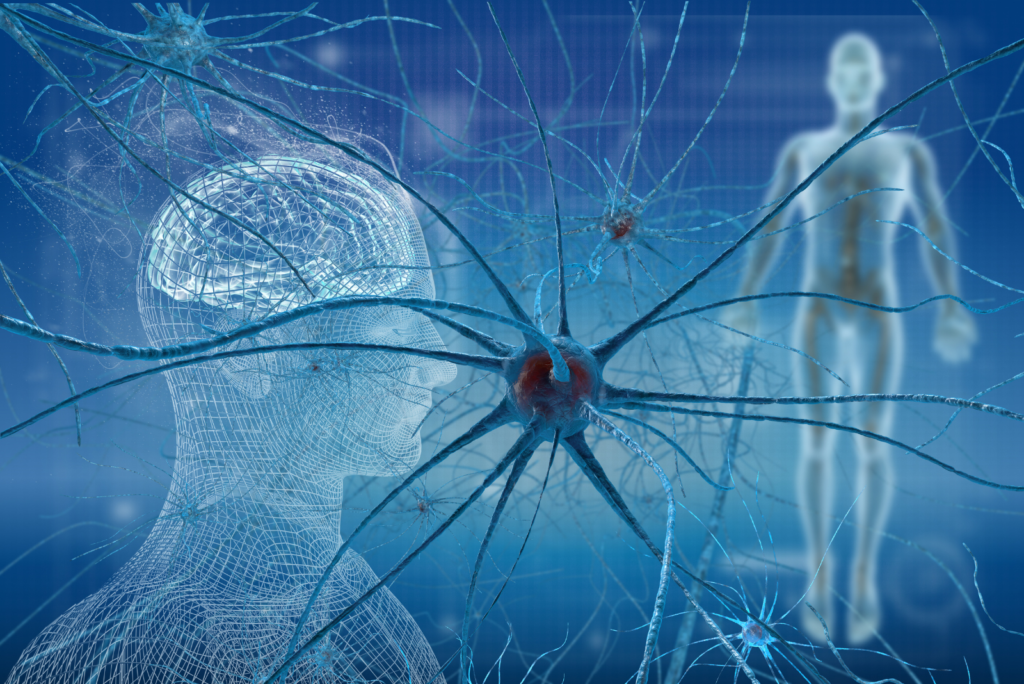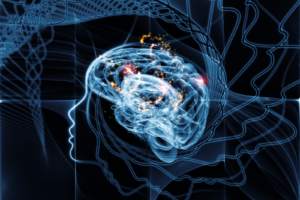
“The natural healing force within each one of us is the greatest force in getting well.”
– Hippocrates
The mind-body relationship is indeed a fascinating and complex one. This is because our thoughts, emotions, and mental state can all greatly impact our health, including the experience of pain.
In fact, studies have shown that stress, anxiety, and depression can all contribute to increased inflammation in the body, the root cause of pain and disease. So, what is the mind-body connection, and how does it relate to pain and inflammation? In this post, we’ll explore the answers to these questions and more as we delve into the complex relationship between body and mind.
What is the Mind-Body Connection?
The mind-body connection refers to the relationship between our thoughts, emotions, mental state, physical health, and well-being. Our mental and emotional states can significantly impact our physical health and vice versa. In other words, our mental and emotional condition can influence how well vital bodily functions and systems perform, thus affecting our overall health.
One familiar way the mind-body connection can impact our physical health is through the experience of pain. Pain is a multi-purpose, multi-dimensional experience involving physical and psychological factors.
So, in a nutshell, physical factors like bodily trauma, injury, and inflammation can cause pain, and psychological factors such as stress, anxiety, and depression can also cause pain.
The Science Behind the Mind-Body Connection: Polyvagal Theory

The polyvagal theory is a relatively new approach that provides a framework for understanding the relationship between the nervous system, emotions, and physical health. Developed by Dr. Stephen Porges, it proposes that the nervous system is not just a single entity but composed of multiple branches that interact in complex ways. The theory focuses on two main branches of the nervous system: the sympathetic nervous system (SNS) and the parasympathetic nervous system (PNS).
According to the polyvagal theory, the interactions between these nervous system branches are closely linked to our emotional and physical well-being. When the SNS is chronically activated due to stress or trauma, it can lead to various adverse health outcomes, including increased inflammation and chronic pain. Similarly, when the PNS is chronically activated due to chronic stress or depression, it can lead to negative health outcomes, such as fatigue, digestive problems, and decreased immunity.
The social engagement system (SES) is the third branch of the nervous system and promotes feelings of safety and connection. When the SES is activated, it can lead to a range of favorable health outcomes, including improved mood, better sleep, and increased social contact. By promoting feelings of safety and connection, the social engagement system can also help to reduce inflammation and pain in the body.
One practical application of the polyvagal theory is the use of mindfulness and other relaxation techniques that activate the PNS and promote feelings of relaxation and safety. By engaging in regular mindfulness practices, such as deep breathing, microcurrent grounding, or meditation, you can counteract the negative effects of chronic stress on the body and promote a more positive emotional state.
Research has shown that mindfulness meditation can reduce the levels of stress hormones in the body and promote a more positive mood and outlook.
Other strategies for managing stress and negative emotions include regular exercise, social support, relaxation techniques, and microcurrent Vagus nerve stimulation.
For more resources on developing a positive mindset when dealing with a chronic health condition, check out our blog posts:
Watch Dr. Rob’s Training on Polyvagal Theory Below:
The Impact of Stress and Negative Emotions on the Body
When we experience stress or negative emotions, our body releases hormones like cortisol and adrenaline. While these hormones are necessary for our fight-or-flight response, they can also negatively affect our health when released in excess. For example, chronic stress and anxiety have been linked to various health issues, including high blood pressure, heart disease, and depression.
Stress and negative emotions can impact our physical health by causing inflammation. As we mentioned, Inflammation is the body’s natural response to injury, infection, or illness and is a necessary process for healing and recovery. However, when inflammation becomes chronic, it can contribute to the development of a range of health conditions, including (but not limited to) chronic pain.
More Mind-Body Resources:
If you’re intrigued by the mind-body connection and would like to learn more, the Pain Free For Life podcast offers valuable insights from top experts in the field.
Here are three episodes you should listen to:
- Episode #38: The Mind-Body Connection And Chronic Pain With Anna Holtzman – In this episode, Dr. Rob Vanbergen and Anna Holtzman discuss the correlation between mental health and chronic pain and the importance of unblocking self-criticism to promote healing with the mind-body connection.
- Episode #07: What Is The Connection Between Mindfulness And Health? – Dr. Rob Vanbergen interviews Alex Montagu about his journey to discovering the power of mindfulness and its benefits on the body. They discuss how gaining control of your mindfulness can help you manage secondary pain and improve your overall health.
- Episode #35: Mental Health And Its Connection To Chronic Pain And Chronic Disease – Dr. Rob Vanbergen talks about the connection between mental health and chronic pain and how reducing inflammation can help alleviate the symptoms of both chronic pain and mental illness. He provides four tips to help limit stress hormones and control inflammation and discusses how microcurrent therapy can be used to eliminate inflammation.
Listening to these episodes can deepen your understanding of the mind-body connection!
The Bottom Line
Stress, anxiety, and depression can all contribute to inflammation in the body, leading to chronic pain and other health issues. If you are experiencing chronic pain or inflammation, learning ways to cut down on or mitigate those negative, draining emotions is important. Your health, sleep, happiness, and pain will only improve when you do.
If you’d like to get started with microcurrent therapy today or have any questions, Check out our page: Which Device Is Right For You HERE.





